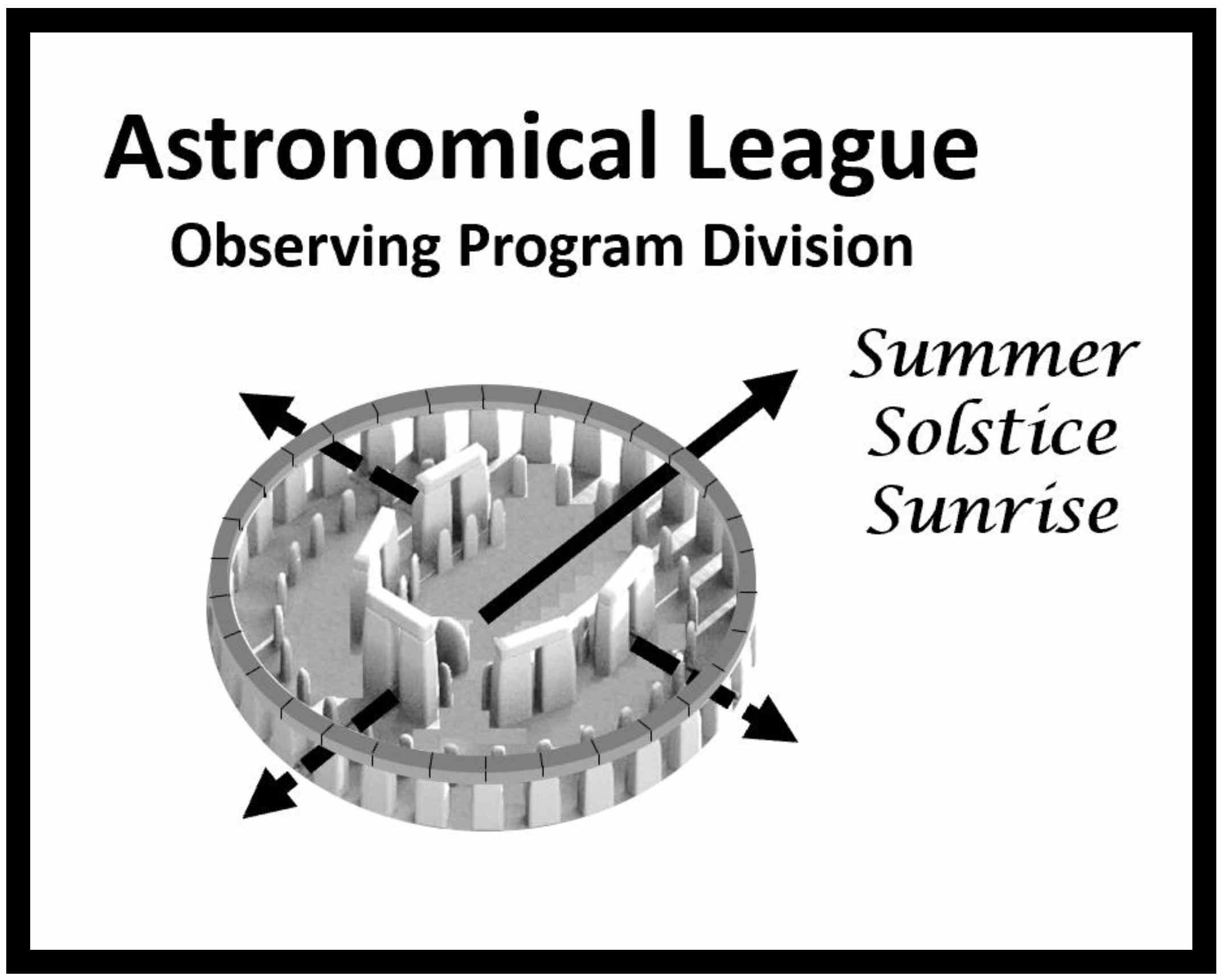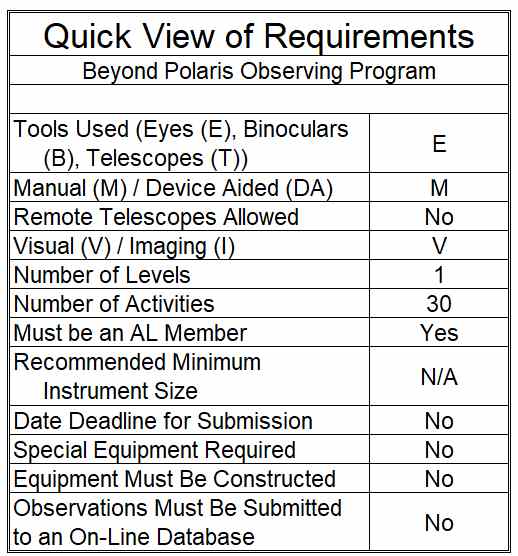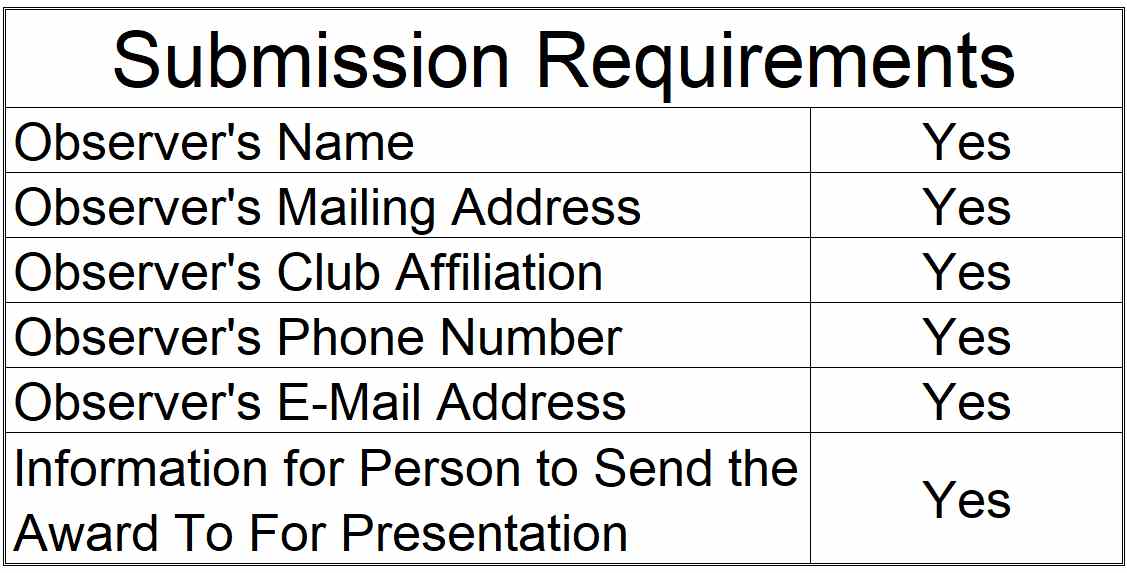Youth Astronomer Observing Program Coordinator:Maynard Pittendreigh |
 |
Overview
| New to astronomy? Wondering where to start observing with the Astronomical League? We have you covered!
This Observing Program is designed for those new to astronomy and ages 11 through 17.
The Astronomical League offers a wide variety of Observing Programs. This Observing Program, The Youth Astronomer, is intended to provide an introduction to the hobby by letting the young astronomer try many different Observing Programs. This allows them to make decisions about where their observing interests should continue. |
 |
Requirements and Rules
The Youth Astronomer Observing Program has two levels: Silver and Gold. You do not need to be a member of the Astronomical League to earn the Silver Certification (certificate only). To earn the Gold Certification (certificate and pin), however, you must be a member of the Astronomical League, either as part of a member society or as a Member-at-Large.
To earn the Silver Level Certification, you must complete twenty-five (25) observations from these five (5) Astronomical League Observing Programs (five from each one):
- Lunar Observing Program (observe any five craters) (Observations MUST be done manually.)
- Solar System Observing Program (complete any five requirements)
- Constellation Hunter Observing Program (Northern or Southern) (sketch any five constellations)
- Binocular Messier Observing Program (observe any five objects)
- Messier Observing Program (Observe any five objects not already observed in the Binocular Messier Observing Program.) (Observations MUST be done manually.)
To earn the Gold Level Certification, you must: 1.) Complete the twenty-five observations required for the Silver Level Certification and 2.) complete an additional seventy-five (75) observations. Your seventy-five additional observations for the Gold Level must include five observations or assignments from any fifteen (15) of the following observing programs:
- Asterism Observing Program (observe any five asterisms)
- Asteroid Observing Program (observe any five asteroids)
- Bright Nebula Observing Program (observe any five dark nebulae) (You must include the brightness using Lynd’s scale.)
- Caldwell Observing Program (observe any five objects) (Observations MUST be done manually.)
- Carbon Star Observing Program (observe any five carbon stars)
- Comet Observing Program (observe any five comets)
- Dark Nebula Observing Program (observe any five dark nebulae) (You must estimate the opacity.)
- Deep Sky Binocular Observing Program (observe any five objects)
- Double Star Observing Program (observe any five double stars)
- Earth Orbiting Satellites Observing Program (observe any five satellites)
- Galileo Observing Program (observe any five objects) (Observations MUST be done manually.)
- Globular Cluster Observing Program (observe any five globular clusters) (You MUST include the concentration class.)
- Herschel 400 Observing Program (observe any five objects)
- Meteor Observing Program (6 hours, counts as five observations)
- Nova Observing Program (observe any five novae)
- Open Cluster Observing Program (observe any five open clusters) (You MUST include the Trumpler Classification.)
- Planetary Nebula Observing Program (observe any five nebulae)
- Spectroscopy Observing Program (observe any five objects)
- Stellar Evolution Observing Program (observe any five stars)
- Target NEO Observing Program (observe any five NEO’s)
- Two in the View Observing Program (observe any five pairs)
- Universe Sampler Observing Program (complete any five requirements)
- Urban Observing Program (observe any five objects) (These MUST be done from light polluted skies.)
- Variable Star Observing Program (observe any five variables)
- You may choose from up to two of these galaxy-based Observing Programs, 5 objects each:
- Active Galactic Nuclei Observing Program (observe any five objects)
- Arp Peculiar Galaxy Observing Programs (observe any five galaxies)
- Flat Galaxy Observing Program (observe any five galaxies)
- Galaxy Groups and Clusters Observing Program (observe any five galaxies)
- Local Galaxy Group and Neighborhood Observing Program (observe any five galaxies)
In summary, the Gold Certification requires you to complete five observations from each of the five Silver Certification programs, plus five observations from each of fifteen programs from the Gold Certification list, for a total of one hundred observations from twenty different programs.
In general, any type of observing “equipment” may be used in pursuit of Silver and Gold Youth Astronomer programs: naked eyes, binoculars, or astrophotography equipment, etc. Go-To and Remote telescopes are allowed except where manual operation is required. The requirements for each Observing Program may vary slightly. It is important, therefore, that you consult and abide by the requirements for each program in which you participate.
Observations must include this information:
- Observing Program that includes your object.
- Object Observed.
- Date and Time (local or Universal Time).
- Seeing and Transparency
- Your Latitude and Longitude
- A sketch or image of the object.
- A brief description of what you saw.
Submitting for Certification
A COPY of of your observations should be submitted to the Observing Program Coordinator, An electronic copy in an email is encouraged. This information must also be provided:
|
 |
Upon verification of your submission and of your active membership in the Astronomical League, your recognition (certificate, pin, etc.) will be sent to you or the awards coordinator for your society, as you specified. Your name will also appear in an upcoming issue of the Reflector magazine and in the Astronomical League’s online database. Congratulations. Good luck with your next observing challenge.
Youth Astronomer Observing Program Coordinator:Maynard Pittendreigh |



